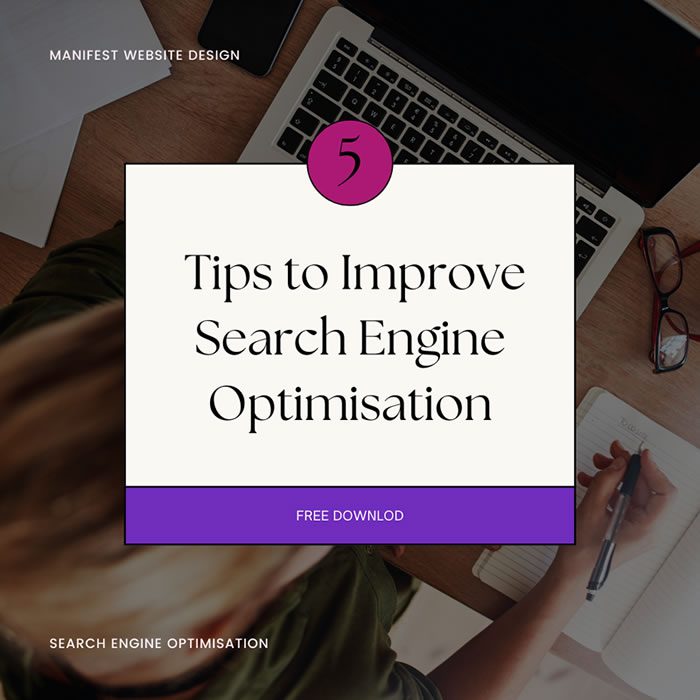How to Do an SEO Audit
Every business is fighting for a spot on the front page of Google.
So you need to prove why you deserve it more than everybody else. This battle often leads business owners to the all-important task of search engine optimisation (SEO) – specifically, an SEO audit.
An SEO audit is a comprehensive process of assessing how well your online presence aligns with best practices. It’s essentially a diagnostic check-up. You’ll be able to identify areas of improvement, opportunities for growth, and strategies for staying ahead in the competitive landscape of search engine rankings.
How to Perform an SEO Audit of Your Website
Run a Site Audit Using Your Preferred Tool
1) Screaming Frog’s SEO Spider
This tool may appear intimidating at first due to its extensive features and technical jargon – but it’s okay, we got you.
For beginners wondering how to do an SEO audit, Screaming Frog SEO Spider offers an exceptionally thorough site crawl (as the name implies) since it can detect broken links, server errors, as well as redirect chains and loops.
It can also optimise on-page SEO elements. By showing your website’s titles, meta descriptions, header tags, and more, you’ll be able to pinpoint areas where your on-page SEO may be lacking. This functionality is particularly useful for larger websites, where manually reviewing each page would be unrealistic.
Screaming Frog shines in its versatility and customisation options, accommodating various audit needs. For instance, it’s capable of extracting custom data, implementing regex (regular expression) matching, discovering duplicate content, visualising site architecture, and integrating with Google Analytics and Google Search Console.
Whether you’re a small business owner, an SEO specialist, or a digital marketing manager, Screaming Frog’s SEO Spider might just be the tool you need.
2) Google Analytics and Google Search Console
Moving on to the power duo of site audits, Google Analytics and Google Search Console can work hand-in-hand to provide a panoramic view of your website’s SEO health. In other words, these two platforms are like the Sherlock Holmes and Dr. Watson of SEO analysis; they offer complimentary insights that, when combined, provide a complete picture.
Google Analytics is a powerhouse that provides granular data about your website’s visitors and their behaviour. This includes information about where your traffic is coming from, what pages users visit, how long they stay on your site, and what actions they take.
Such data is crucial for understanding your audience. A high bounce rate, for instance, might suggest issues with page loading speed, poor design, or content relevancy, enabling you to focus on these aspects during your SEO audit.
Google Search Console, on the other hand, focuses on your website’s relationship with Google’s search engine. It alerts you to any technical issues that could be impacting your site’s visibility in search results. It highlights errors in your sitemap, problems with mobile usability, and issues that might prevent Google from indexing your pages.
3) SEMrush
SEMrush is like the Swiss army knife of SEO marketing. It’s been part of our digital marketing arsenal for quite some time now since it goes beyond technical and on-page SEO.
It offers an in-depth analysis of your website’s backlink profile, showing you where your backlinks are coming from and how valuable they are, which is essential for your off-page SEO efforts.
SEMrush is also known for its keyword research capabilities. It not only shows where you rank for specific keywords, but it also gives you information about your competitors’ rankings and suggests new keyword opportunities. I definitely vouch for this SEO tool (this isn’t sponsored, I just love the tool).
Questions to Ask Yourself When Analysing A Website SEO Audit
1) Technical SEO
Technical SEO refers to the background elements of a website that help search engines crawl and index your site more effectively. Simply put, it’s about making sure your website “plays well” with search engines.
- Is the website fast enough? Load speed is important because slow-loading sites can frustrate visitors and make them leave. Plus, Google considers website speed when ranking pages.
- Is it mobile-friendly? More and more people are using their smartphones to browse the web. If your site isn’t easy to use on a phone, Google might lower its ranking.
- Does it have a sitemap? A sitemap is like a roadmap of your website that helps search engines understand the structure of your site.
- Is it secure? Websites that use HTTPS (the “s” stands for secure) are prioritised by Google because they’re safer for users.
2) On-Page SEO
On-Page SEO is about the content on your business website and how well it’s optimised for relevant keywords. This includes things like your page titles, descriptions, and the actual text on the page.
- Does the website use keywords effectively? Keywords are the words and phrases people type into search engines. You want to make sure these are included naturally in your content.
- Are the titles and descriptions engaging? These elements often show up in search results, so they should be enticing and accurately represent the content of the page.
- Is the content high-quality and relevant? Google prioritises sites that provide useful information to its users. Refer to E-E-A-T content guidelines.
- Are images properly optimised? This includes using relevant file names, alt text, and ensuring they’re the right size.
3) Off-Page SEO
Off-Page SEO is about how your website is connected to the rest of the web. This includes things like backlinks from other websites and social media promotion. Issues with off-page SEO can lead to a lack of authority and trustworthiness in the eyes of search engines and users.
- Does the website have quality backlinks? Backlinks are links from other websites to yours. Google sees these as a sign of trust and authority but only if they come from reputable sites.
- Is the website talked about on social media? While social media links do not directly affect your SEO, they can lead more people to your website and increase its visibility.
- Does the website have a good online reputation? Online reviews, comments, and other forms of user-generated content can influence how Google views your website.
Pro tip: SEO is a long-term process. It’s not just about ticking boxes; it’s about providing a great user experience and valuable content. It takes time, but the benefits – in terms of increased visibility and traffic – can be well worth your investment.
Prioritise and Make the Necessary Changes
Once you have a comprehensive SEO audit in your hands, you may find yourself overwhelmed with all the information and changes that you have to deal with. I suggest that you start with the major errors (e.g., slow-loading pages, mobile-responsiveness) and your most popular pages. Take things one step at a time.
You could also focus on quick wins (quick improvements with relatively less effort). These could include optimising meta tags, fixing broken links, or improving page load times. Prioritise these tasks to demonstrate immediate improvements and build momentum.
If you have pages that don’t get visited much, they might need a revamp. Ask yourself if the information on these less popular pages is useful and up-to-date. If not, spend some time enhancing these pages.
Just Ask for a Free SEO Audit From Manifest Website Design
We’ll say it time and time again – SEO is an ongoing process. Algorithms change, as do your customers and their search habits. Regular audits can help ensure your website continues to meet your users’ needs and search engines’ standards.
If you’re feeling overwhelmed by the complexity of SEO audits or lack the time to dive into it yourself, Manifest Website Design is here to guide you. We believe in the power of SEO so much that we’re offering a free SEO audit for your website. This is a no-obligation opportunity for you to see where your website stands in the vast search results pages and how it can improve.
Don’t navigate the complexities of SEO alone. Request for a free SEO audit to learn how to get a more visible, high-performing website.
JILLIAN BRANDON
About the Author
Jillian has over 30 years of experience in technology, programming, and digital marketing. Her work with the stock exchange in Australia, as well as other large corporations, has given her invaluable business expertise.
At Manifest Website Design, she helps goal-driven entrepreneurs build their business, regardless of size and industry, using the power of the internet. She’ll walk alongside you every step of the way, making sure that your website is running smoothly, and most importantly, generating leads. Connect with her on LinkedIn.




